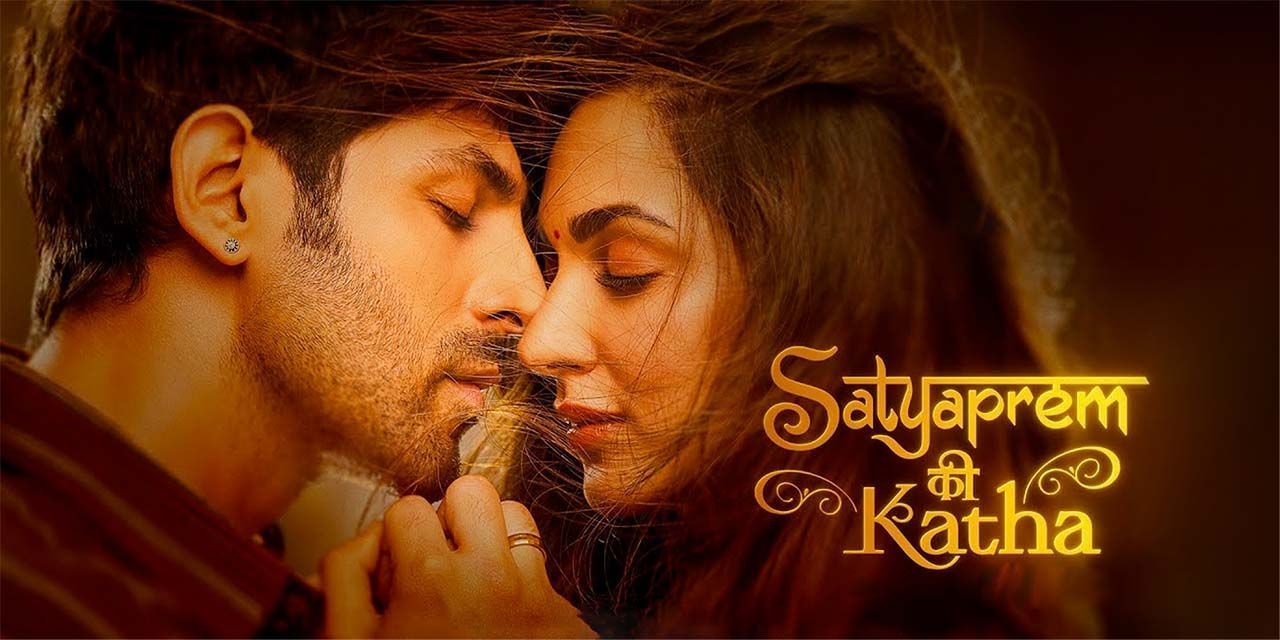While certain aspects of this love story deserve recognition, the film ultimately stumbles due to its simplistic writing.
Director: Sameer Vidwans
Writer: Karan Shrikant Sharma
Cast: Kartik Aaryan, Kiara Advani, Gajaraj Rao, Supriya Pathak Kapur
“Satyaprem ki Katha” is a film that encompasses various elements, including Gujju patakas (firecrackers), dandiya scenes, a subtle tribute to Falguni Pathak’s unrivaled garba soundtracks, and public service announcements on consent, emphasizing the importance of “no means no.” Director Sameer Vidwans and writer Karan Shrikant Sharma aim to utilize this Bollywood star-driven vehicle to educate the audience on how to support survivors of sexual abuse. However, despite its good intentions, the film often relies on tired clichés, cringe-worthy jokes, and an abundance of mansplaining, ultimately hindering its impact.
The story revolves around Satyaprem, also known as Sattu (played by Kartik Aaryan), the only unmarried individual in his middle-class Ahmedabad neighborhood. Having failed in his attempts to become a lawyer, he now assumes the role of a stay-at-home son, sharing household responsibilities with his father (Gajaraj Rao). His mother (Supriya Pathak Kapur), named Diwali, and his aunt, named Christmas, serve as the family’s primary breadwinners. Diwali teaches garba dancing while his sister Sejal (Shikha Talsania) is a zumba instructor. The film attempts to find humor in the reversal of traditional gender roles, presenting the women as dominant figures and the men as unpaid labor, with the intention of garnering sympathy for Sattu. Although traditionally such a young man would be considered an underdog due to his inability to secure employment, Sattu is portrayed as a genuine hero awaiting his moment to shine, perhaps reflecting the challenging labor market and rising unemployment rates in the country. Additionally, it is evident that he is not particularly skilled in household chores.
The film’s attempt to address important issues such as consent and support for survivors of sexual abuse is commendable. However, it often gets lost amidst the heavy-handed mansplaining and reliance on worn-out stereotypes. The script fails to strike a balance between humor and meaningful storytelling, resulting in a prolonged runtime of 146 minutes that feels like a never-ending lesson in condescension.
In conclusion, “Satyaprem ki Katha” showcases ambition in its desire to tackle significant societal issues but falls short due to its simplistic and clichéd approach. Despite the talented cast, including Kartik Aaryan and Kiara Advani, the film struggles to deliver a well-rounded narrative, relying too heavily on mansplaining and shallow attempts at humor. It ultimately fails to make a lasting impact or engage the audience on a deeper level.
Final Verdict: “Satyaprem Ki Katha” – Virtue-Signalling Overshadows Genuine Passion
Unfortunately, “Satyaprem Ki Katha” falls short of being a heartfelt labor of love and instead becomes an exercise in virtue-signalling.

